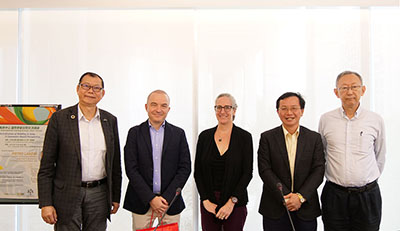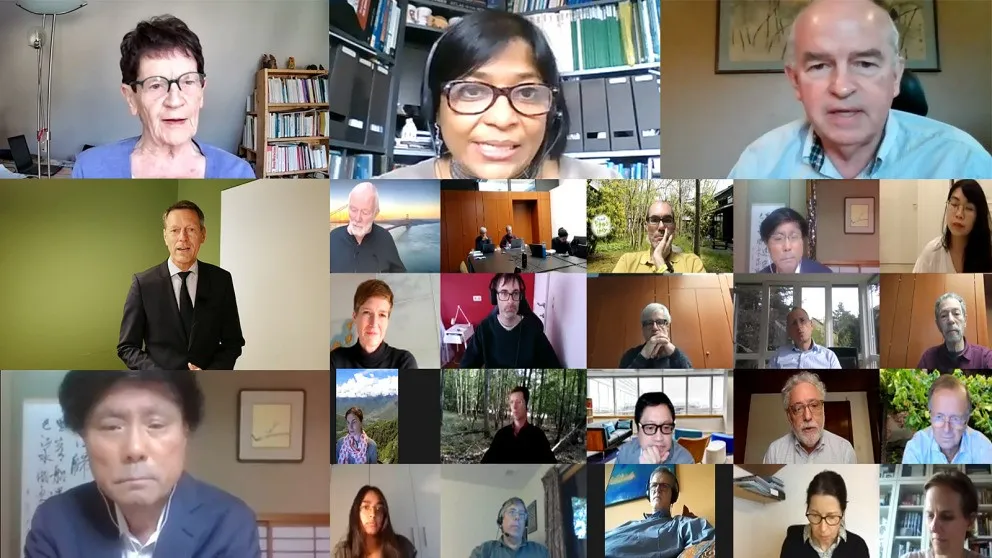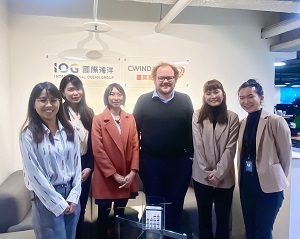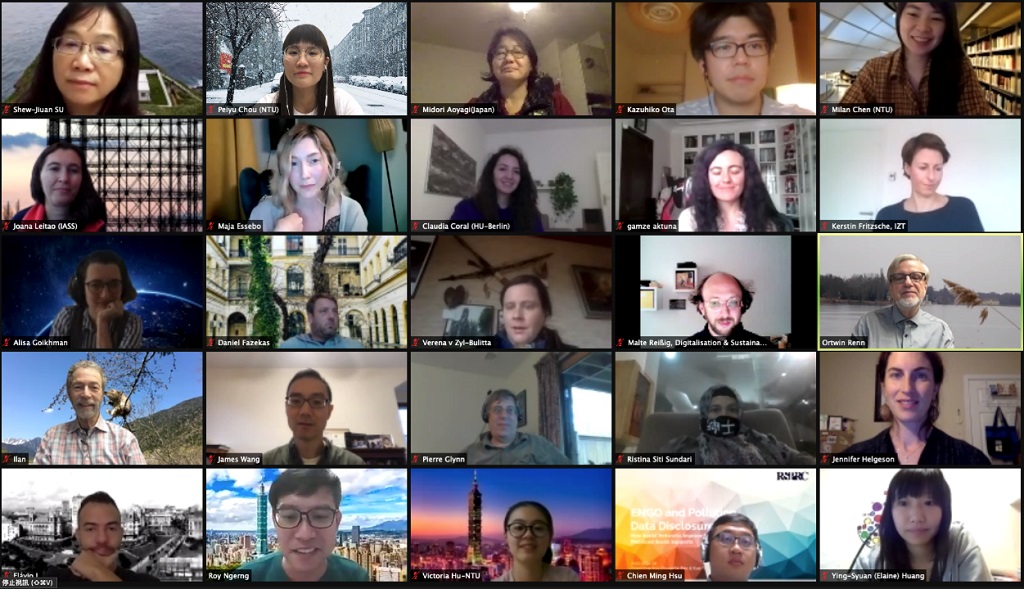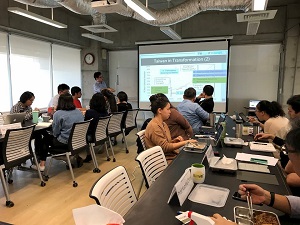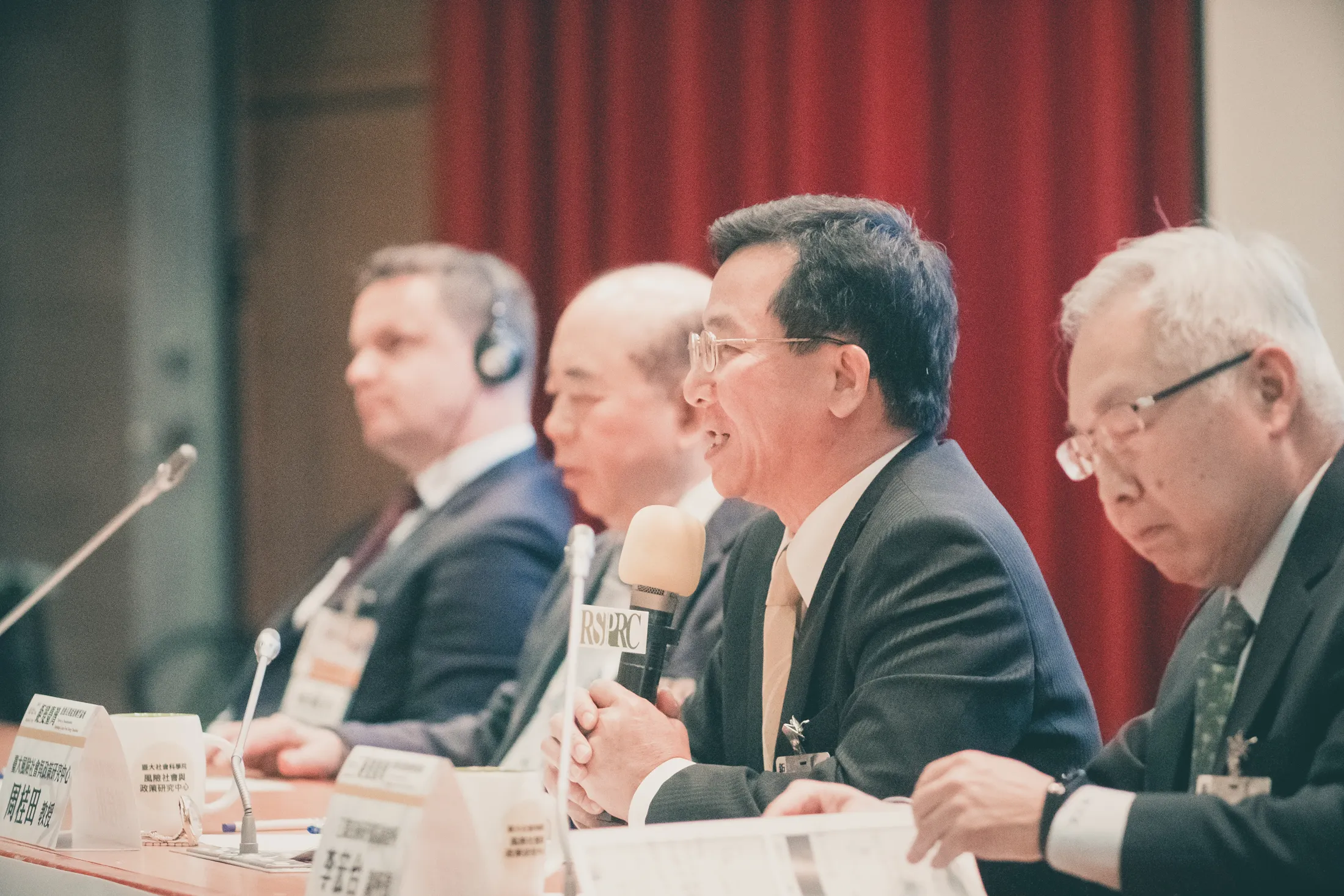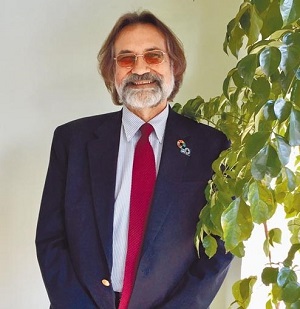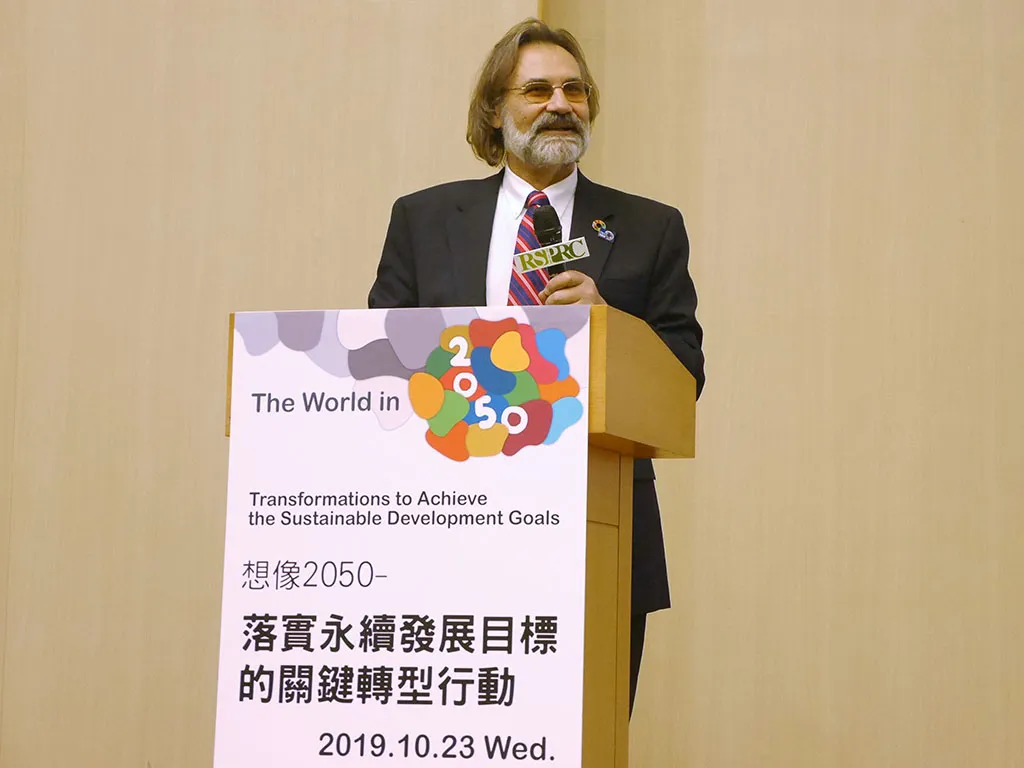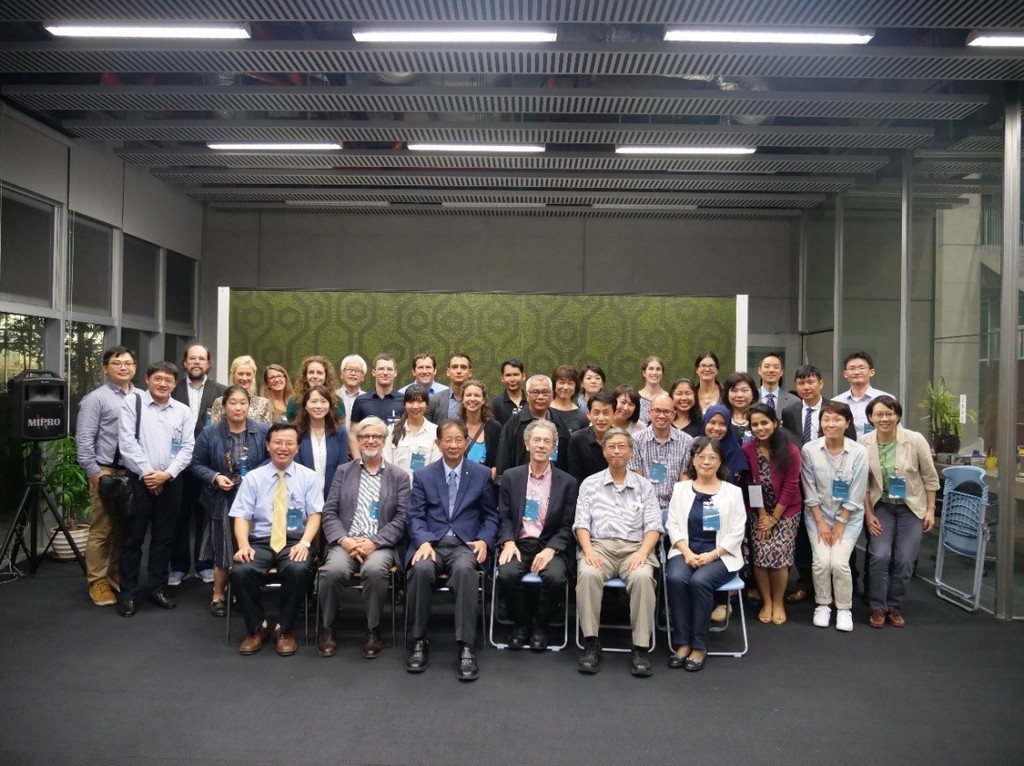On the 30th of November 2023, the Risk Society and Policy Research Center (RSPRC) of National Taiwan University hosted an open forum by Associate Professor Pietro Lanzini from Ca' Foscari University of Venice, Italy. His research interests include consumer behavior and sustainability, with a special focus on mobility, the food sector and spillover-related phenomena. The title of his presentation was "The Electrification of Mobility in Italy: A Commuter-based Perspective."
On 26th of July 2023, the Risk Society and Policy Research Center (RSPRC) of National Taiwan University hosted a lecture by distinguished Professor Andreas Klinke from the Memorial University of Newfoundland, Canada. He has been exploring different topics like cosmopolitanism, globalization, risk society, sustainable development, and transnational democracy for years. The captivating lecture was about post-normal politics.
In the beginning, Professor Klinke said we are experiencing epochal changes at all socio-political levels, like the Industrial revolution, predicted by Ulrich Beck. The old and new uncertainties and different sort of risks were inevitably interwoven during the transformation. He then referred to "global socio-material system," by the sociologist John Urry, to describe the inevitable natural-social interrelations between issues and unmet needs. Typical examples were the climate, energy, biological diversity, world economy, and world politics issues.
The COVID-19 pandemic that has swept across the planet in 2020 has reinforced the need for scientists and policymakers to co-develop solutions to tackle future challenges, which is increasingly important as the global community strive toward sustainability goals.
The Risk Society and Policy Research Center (RSPRC) conducted an interview with CWind Taiwan's Deputy General Manager Tom Manning this week to learn more about CWind's experience in developing renewable energy in Taiwan, as well as the opportunities and challenges in Taiwan's renewable energy landscape.
The book launch and forum for the new book, "Climate Change Governance in Asia" was held at the Annual Conference of the Taiwanese Sociology Association on November 29, 2020 at the Department of Sociology, National Taiwan University.
The 3rd International KLASICA Taipei Symposium was organized last month by our center, the Risk Society and Policy Research Center (RSPRC), National Taiwan University, in collaboration with the Institute for Advanced Sustainability Studies (IASS) in Germany. The symposium was joined by over 50 participants from 20 countries in the Asia-Pacific, Europe and the Americas, and was held online this year due to the COVID-19 pandemic.
Our center had the pleasure of inviting Josh Burke, Policy Fellow at the Grantham Research Institute on Climate Change and the Environment, for an academic exchange on February 26, 2020, where we exchanged learnings on carbon pricing and its implementation. Burke also leads the policy analysis team on the United Kingdom (UK)'s climate and energy policy. We would also like to thank Michael Watters, Head of Economy and Prosperity at the British Office Taipei, for facilitating the exchange.
The Risk Society and Policy Research Center (RSPRC) launched our flagship report this month (November 2019), 'Taiwan in Transformation: Initiating a Long-Term Energy Transition', to provide recommendations on the long-term strategies that Taiwan needs to undertake for its long-term energy transition. The report is the culmination of three years of scientific research conducted by our center's researchers. To launch the report, a media conference and forum was held on 11 November 2019 to introduce the report.
This article is a translation of the interview conducted by China Times's Deputy Editor-in-Chief Ann Hsieh with Prof. Dr. Nebojsa Nakicenovic and published on November 4, 2019. The original interview in Chinese can be found here.
In October 2019, Prof. Dr. Nebojsa Nakicenovic visited the Risk Society and Policy Research Center (RSPRC) for an academic exchange. Prof. Nakicenovic is the Executive Director of The World in 2050 (TWI2050) initiative established by the International Institute for Applied Systems Analysis (IIASA) to develop evidence-based research to guide policymakers in the implementation of the Sustainable Development Goals (SDGs). Prof. Nakicenovic was also formerly IIASA's Deputy Director General/Chief Executive. During his visit, China Times' reporter Ann Hsieh conducted an interview with Prof. Nakicenovic, where the interview was published on 4 November 2019. Below is a translation of the interview.
On October 23, 2019, the Risk Society and Policy Research Center (RSPRC) invited Prof. Dr. Nebojsa Nakicenovic, Executive Director of The World in 2050 (TWI2050) initiative, to give a talk on the transformations required to achieve the Sustainable Development Goals (SDGs). TWI2050 was established by the International Institute for Applied Systems Analysis (IIASA) as an effort to develop evidence-based research to guide policymakers in the implementation of the SDGs, and involved more than 60 authors from about 20 institutions, and 100 independent experts from academia, the government, businesses, as well as from intergovernmental and non-governmental organizations from around the world, to develop global strategies that were published in two reports in 2018 and 2019. The first part of this article highlighted the key points in these two reports, given in the talk by Prof. Nakicenovic. In this second part, we highlight the key points given in the talks by National Taiwan University (NTU) Dean of Science Prof. Chun-Chieh Wu and Taiwan Mobile Social Responsibility Manager Jessica Chou to share on Taiwan's experience in sustainable development, as well as highlights from the question and answer session.
Taiwan launched its official Sustainable Development Goals (SDGs) in July this year, and as part of the SDGs developed, guidance was sought from two reports released by The World in 2050 (TWI2050) initiative. The Risk Society and Policy Research Center (RSPRC) is also conducting a scenario planning project to chart future trajectories for Taiwan's growth towards 2050, and has also similarly consulted with the TWI2050 initiative. TWI2050 is headed by Prof. Dr. Nebojsa Nakicenovic as its Executive Director and was established by the International Institute for Applied Systems Analysis (IIASA) as an effort to develop evidence-based research to guide policymakers in the implementation of the SDGs. To learn more about the two reports, the RSPRC invited Prof. Nakicenovic to give a talk at the "The World in 2050 Conference–Transformations to Achieve the Sustainable Development Goals" on October 23, 2019, to shed more light on the transformations required to achieve the SDGs globally; as well as the impacts that digitalization can bring to sustainable development, and the strategies to address them. As part of the conference, Dean of the National Taiwan University (NTU)'s College of Science Distinguished Prof. Chun-Chieh Wu and Taiwan Mobile's Social Responsibility Manager Jessica Chou were also invited to share on Taiwan's experience in sustainable development.
The Institute for Advanced Sustainability Studies (IASS) was established in 2009 in Potsdam, Germany. IASS conducts novel and interdisciplinary research with an eye on achieving the Sustainable Development Goals (SDGs). In 2017, the Federal Government of Germany assigned it the role of organizer of the Science Platform Sustainability 2030. The RSPRC has signed a Memorandum of understanding with the IASS to jointly host the KLASICA Symposium every two years in Taiwan in order to learn about transitional development from German society, and to strengthen German-Taiwanese academic cooperation with in-depth dialogue.

